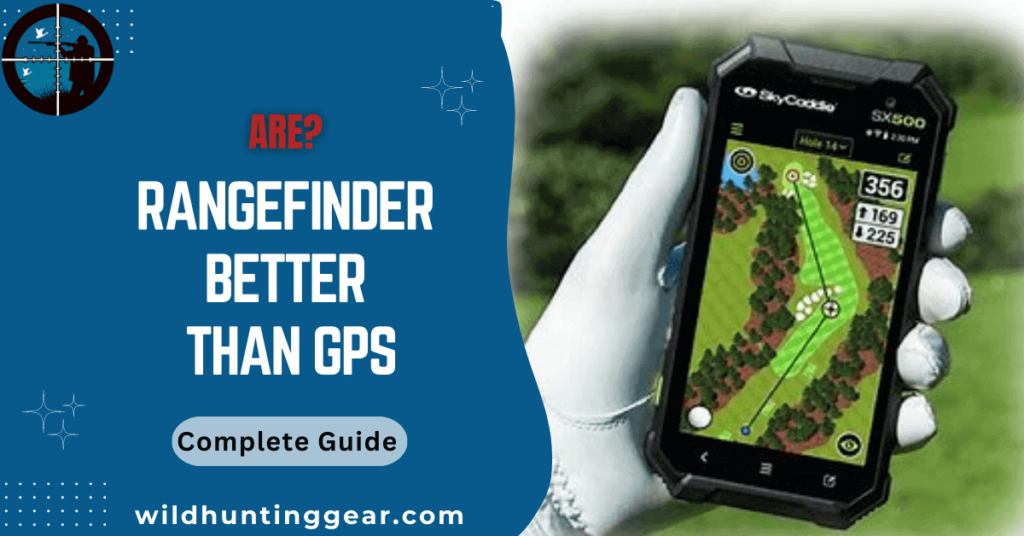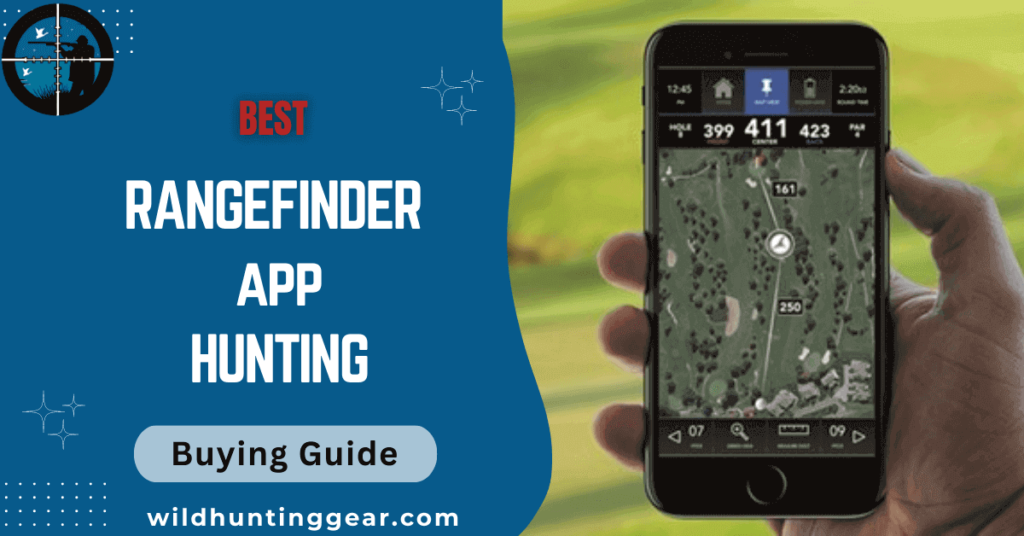Rangefinders and GPS are two of the most commonly used methods for measuring distances, both having their own advantages and disadvantages.
Rangefinders measure distances optically by using a laser beam, while GPS units measure distance via satellite signals and can provide greater accuracy over longer ranges. In this article we will compare rangefinders and GPS to determine which technology is better.
We will look at the pros and cons of each, as well as how they can be used in different situations. By the end, you’ll have a better understanding of which technology is best for you. Let’s get started!
Understanding rangefinders and GPS
Rangefinder:
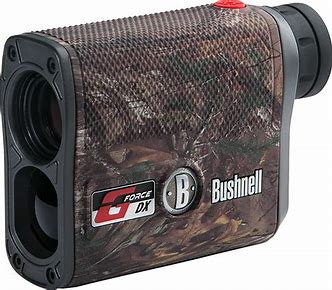
Rangefinders measure distances by using a laser beam. This laser beam is sent out to an object and then the time it takes for the reflected light to come back is used to calculate the distance.
This process can be done quickly and accurately, making rangefinders ideal for golfers who don’t want to waste time searching for the right club or shot.
They’re also great for hunters, giving them the ability to accurately gauge distances when shooting. There are three type of range finder, laser rangefinders, optical rangefinders and ultrasonic rangefinder.
GPS:
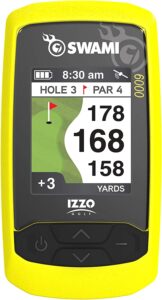
GPS stands for Global Positioning System. It is a satellite-based navigation system that allows users to access their exact location and track it anywhere in the world.
GPS units measure distances via satellite signals and can provide greater accuracy over longer ranges than rangefinders can.
One of the biggest advantages of using a GPS device is that it can be used in all weather conditions, making it ideal for outdoor activities such as hiking and backpacking. GPS units are also very accurate, so you don’t have to worry about getting lost or taking the wrong turn.
Comparison of rangefinders and GPS devices
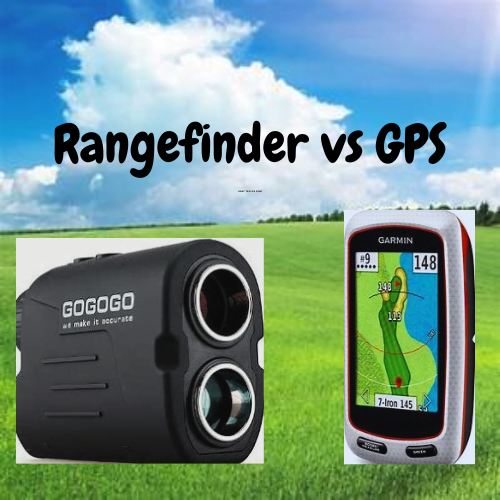
Rangefinders and GPS (Global Positioning System) devices are both used in outdoor activities such as golfing, hunting and surveying to determine distances and locations. However, they operate in different ways and offer distinct advantages and disadvantages. Let’s compare them:
1) Principle of Operation:
Rangefinders: Rangefinders use laser or ultrasonic technology to measure the time it takes for a beam to travel to an object and back. By calculating the time and the speed of light or sound, the device determines the distance to the target.
GPS Devices: GPS devices receive signals from a network of satellites orbiting the Earth. These signals contain precise timing information, allowing the device to calculate its position based on the time it takes for signals to reach it from multiple satellites.
2) Accuracy:
Rangefinders: Laser rangefinders are generally more accurate than GPS devices, providing precise measurements to within a few yards or even feet. Ultrasonic rangefinders may have slightly lower accuracy but are still reliable for many applications.
GPS Devices: GPS devices typically have an accuracy of around 10 to 30 feet, depending on various factors such as signal strength, satellite geometry and environmental conditions. While this level of accuracy is sufficient for most purposes, it may not be as precise as rangefinders in certain situations.
3) Functionality:
Rangefinders: Rangefinders excel at providing accurate distance measurements to specific targets. They are commonly used in golfing to determine the distance to the flag or hazards, in hunting to estimate the range to game animals and in surveying for measuring distances between points.
GPS Devices: GPS devices not only provide distance measurements but also offer comprehensive navigation capabilities. They can display maps, show current coordinates, track movement, provide route guidance and calculate distances between various points of interest. GPS devices are more versatile in terms of overall functionality.
4) Environmental Factors:
Rangefinders: Rangefinders are generally unaffected by environmental conditions like rain, fog or heavy foliage since they rely on direct line-of-sight measurements.
GPS Devices: GPS devices can be affected by environmental factors such as tall buildings, dense tree cover or poor satellite visibility. These conditions can degrade the accuracy and reliability of GPS measurements.
5) Ease of Use:
Rangefinders: Rangefinders are usually compact, handheld devices with simple controls. They are relatively easy to use, requiring the user to aim at the target and press a button to obtain a distance reading.
GPS Devices: GPS devices may have more complex interfaces due to their additional features. They often require more setup, such as satellite acquisition and map loading. However, once configured, they provide more comprehensive information and functionality.
Ultimately, the choice between a rangefinder and a GPS device depends on the specific requirements of the activity. If precise distance measurements to specific targets are crucial, a rangefinder may be the preferred choice.
However, if navigation, mapping and overall versatility are important, a GPS device would be a better option. Some users may even opt to use both devices together for different purposes.
Related Article: Use A Golf Rangefinder For Hunting
Preferences among professional golfers and amateurs

Preferences can vary among golfers based on their individual playing styles and needs.
- Professional golfers often prioritize accuracy and prefer rangefinders due to their precise distance measurements and the ability to consider slope and elevation changes. They typically have caddies who can help with course management, so the additional features provided by GPS devices might be less important to them.
- Amateurs, on the other hand, may find GPS devices more beneficial, as they provide a comprehensive view of the course layout and help with shot planning. GPS devices are often user-friendly and can offer additional features like score tracking, statistics and hole overviews, which can be appealing to amateurs who may not have extensive course knowledge or access to caddies.
Preferences among professional hunters
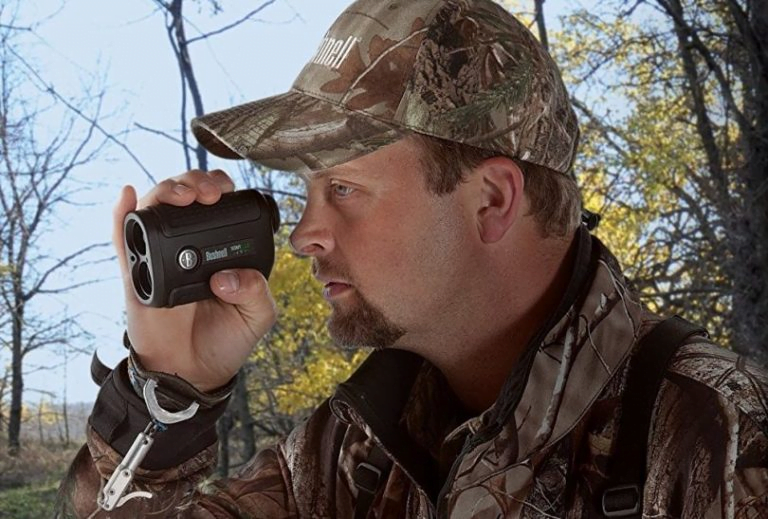
Professional hunters have varying preferences when it comes to GPS devices and rangefinders.
- GPS devices are favored by those who prioritize navigation, planning and comprehensive features. They provide mapping data, weather updates and can be used for distress signaling.
- Rangefinders, on the other hand, are popular among hunters who prioritize distance accuracy for precise shots.
- Many professional hunters use both tools, as they serve different purposes. The choice depends on the specific needs and hunting style of each individual.
Pros and Cons of rangefinder and GPS.
Rangefinder
Pros
- Highly accurate measurements
- Compact and easy to use
- Unaffected by environmental conditions
Cons
- Limited functionality beyond distance measurement
- Can be expensive for advanced models with additional features
GPS Device
Pros
- Comprehensive navigation capabilities
- Versatile features for mapping and planning
- Generally more affordable than rangefinders
Cons
- Lower accuracy than rangefinders
- Can be affected by environmental conditions
Bonus:
Advantages of using both:
Using both rangefinders and GPS devices can provide users with the best of both worlds. Rangefinders offer precise distance measurements, while GPS devices provide navigation features and mapping data. By combining these two tools, users can benefit from accuracy and versatility in a wide range of activities. Moreover, some modern devices even offer hybrid capabilities, combining the advantages of rangefinders and GPS into a single device.
It is important to consider budget constraints, as hybrid models can be more expensive than purchasing two separate devices. However, for users who require both accuracy and comprehensive navigation features, using a combination of rangefinder and GPS may be the ideal solution.
Final Words:
Rangefinders and GPS each have their own advantages and limitations. While rangefinders offer precise distance measurements and are unaffected by satellite signal availability, GPS provides broader navigational capabilities and real-time course information.
The choice between rangefinders and GPS depends on individual preferences and specific needs, such as the desired level of accuracy, versatility and functionality.
